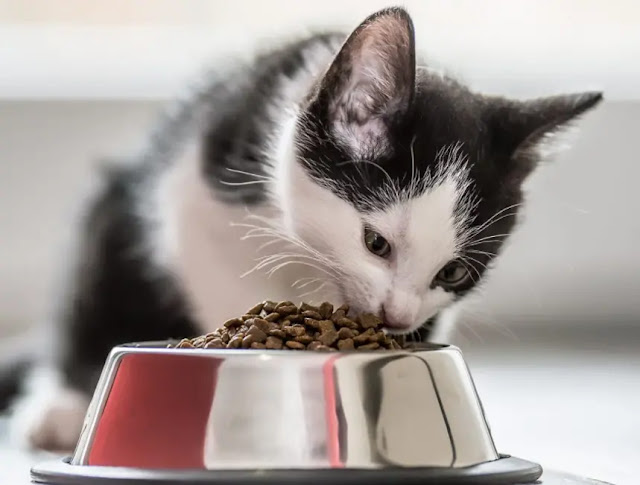The best food for kittens
The pace of cats' development and growth changes rapidly during the first months of their life. It has two or three different types, wet and dry, with different flavors three times a day.
What is the food for kittens from 2 months to 6 months old?
The fastest growth period occurs during the first six months of a cat's life, after which her caloric and nutrient requirements decrease.
Kittens need to eat frequently in their first few weeks of life to consume enough nutrients to keep them healthy and growing.
The mother cat usually weaned her kittens at the age of four weeks, and the same time frame applies to bottle-fed kittens, as they should start introducing specially formulated cat food into their diets, by mixing a little wet cat food with milk replacer to make a mixture of porridge.
When choosing a diet for your cat, it is important to include the important nutrients in the kitten's food:
Protein:
Growing cats need protein in a high percentage during weaning. Still, this percentage decreases after that, and the recommended protein ratio for healthy cat growth is 35-50% on a dry matter basis with at least 9% of dry matter from an animal source.
Calcium:
The formula for cats should contain 0.8-1.6% calcium on a dry matter basis. Once an appropriate food product has been selected, no supplements or additional vitamins should be given, and foods that produce a urinary pH of 6.2 should be avoided.
Fats:
Which are a source of essential fatty acids, and a concentrated source of energy, but their excess leads to obesity and bone disease, so they should represent about 18-35% on a dry matter basis.
Kittens need bottle feeding during the weaning process, but over the fifth week, less formula milk should be put into the porridge, and dry cat food should be introduced with a bowl of water.
Calories:
As cats grow and become more active; Their daily caloric needs to increase, so it is expected that you will need to increase your cat's daily caloric intake depending on its age and weight to support its better growth and development.
Pay close attention to the cat feeding schedule on the food label and consult your veterinarian about any questions regarding how much your kitten should eat.
Look at the label above the cat food to see how many calories are in the can or cup, then divide your cat's calorie needs by the calorie content of the food, to find the appropriate amount per day, and then divide it by the number of meals that should be served each day; For a serving size of each serving.
How many kittens meals?
Because of the kitten's stomach, it is recommended to divide the small cat food into three or four meals a day, and it can be reduced to twice a day when it reaches six months, but some older cats may also prefer small frequent meals.
When is solid food introduced to cats?
By the time kittens are 8 weeks old, they should have switched entirely to solid food, as it is recommended that they be fed regular cat food, 9 lives cat food
Growing cats need up to 3 times more calories and nutrients than adult cats, so it is recommended that the nutritional composition of cats be; High quality, with the need to provide adequate hydration by placing a bowl filled with fresh and clean water.
How much weight should a kitten gain?
Weigh your cat every day to ensure that she is gaining weight. Newborn kittens should be gaining 3 to 4 ounces a week and weighing about 2 pounds by the time they are two months old, and if they are not gaining weight; Consult a specialist veterinarian.
What should you feed cats with diarrhea?
Loose, liquid stools are not normal in cats, and the cause could be diarrhea, food problems, or an underlying medical problem in the cat.
Because diarrhea often leads to dehydration, replace the water in your cat's formula with an unflavored Pedialyte solution to provide the glucose and electrolytes your pet needs.




Comments
Post a Comment